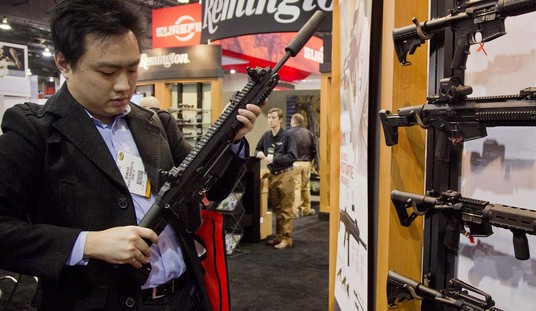A 35-year old man from Mexico who’s already been deported from the United States twice after convictions for serious crimes is once again behind bars and facing federal immigration and gun charges in Tennessee.
Angel Daniel-Garcia, 35, of Mexico was indicted Wednesday on charges of being an aggravated felon who illegally re-entered the United States after having been previously deported, being a convicted felon in possession of a firearm and being an illegal alien in possession of a firearm.
The new charges stem from an incident on Sept. 10 in which Daniel-Garcia was found in possession of a Smith & Wesson 9mm pistol. He’s also facing felony drug and gun charges from a shooting in Davidson County that same day.
Daniel-Garcia’s criminal history in the United States dates back nearly a decade. In 2010, the Mexican national was convicted of using a firearm in the commission of two robberies in the Nashville area. He was deported, but was soon back on U.S. soil, where he was arrested and charged with being an aggravated felon who entered the country illegally after a previous deportation. He served less than two years in federal prison (it’s unclear whether or not he served any real time for the two robberies in Nashville), and after his sentence was up he was once again deported back to Mexico. That’s the last time law enforcement had heard of Daniel-Garcia until early last month, when shots rang out in Davidson County, Tennessee.
Don Cochran, who’s the U.S. Attorney for the Middle District of Tennessee, says Daniel-Garcia now faces up to a decade in federal prison on the charge of being a felon in possession of a firearm. He’s facing twenty years for the immigration violation, and it would appear to be a pretty cut and dried case, given that police arrested him around Nashville, not Nuevo Laredo.
Interestingly, there’s a law in Tennessee that bans “sanctuary cities” in the state, and Nashville’s mayor David Briley has been very vocal about wanting to get the law off the books and going so far as to sign an executive order that challenges the authority of the state law. As The Tennessean reported last month:
The mayor’s move comes after reports last week that the city’s probation department was actively cooperating with federal immigration agents seeking to deport immigrants in the country illegally.
WSMV first reported that the General Sessions Probation Department was sharing information on probationers with Immigration and Customs Enforcement agents — prompting the mayor and broad swath of the Metro Council to demand investigations.
In one of her first moves taking over as presiding judge of the General Sessions Court this week, Judge Lynda Jones stood Tuesday in support of Briley as he signed the order at city hall.
“The city of Nashville believes that HB 2315 is bad for Nashville, and as a result, it’s bad for the state,” Briley said in an interview with The Tennessean. “It’s bad because it makes it harder for us to keep our city safe. Harder for us to keep our city healthy. Harder for us to educate the children that live in this city. Ultimately, everybody is going to pay for those difficulties.”
Nashville’s mayor may want to believe that the sanctuary city policy he supports would simply protect honest, hard-working people whose only crime was loving the United States so much they skipped the line to come in legally, but that’s not the case at all, as Daniel-Garcia’s criminal history makes clear. It’s even more appalling to see a judge adopt that attitude as well. But as long as Mayor Briley, Judge Jones, and other politicians want to make it harder to ensure that violent felons are deported or held over for trial by declaring their communities “sanctuaries”, you’re going to see plenty of other communities go in another direction, adopting “Second Amendement sanctuaries” to ensure that residents maintain the right of self-defense against violent criminals like Daniel-Garcia. Briley may want to put politics about public safety, but there are a lot of Tennesseans who feel differently.









Join the conversation as a VIP Member